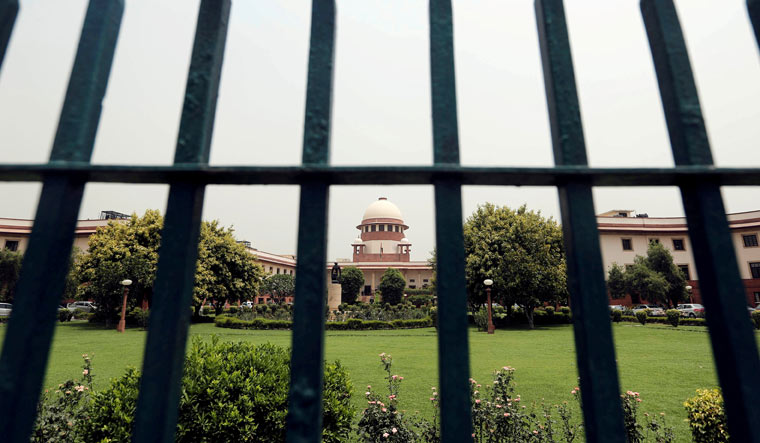When lawmakers develop cold feet to tweak archaic laws, it makes way for the judiciary to intervene and sometimes strike them down in the interest of the aggrieved sections of society and deliver justice.
On Thursday, when Justice D.Y. Chandrachud termed section 497 of Indian Penal Code, which criminalises adultery, an “archaic provision” which treats women as a commodity and opined that the state power cannot be invoked for prosecuting an individual for matrimonial issues, he was doing just that.
The Union home ministry in all its wisdom had said just the opposite. The MHA bureaucrats were of the opinion that criminalising marital rape and decriminalising adultery can destabilise the institution of marriage. The MHA shared its opinion in court when it was responding to a PIL in Supreme Court challenging the constitutionality of such adultery laws. The ministry had said that Section 497 of Indian Penal Code “supports, safeguards and protects the institution of marriage” and striking it down will prove detrimental to the intrinsic Indian ethos.
also read
- ‘A tight slap to Congress-led opposition’: PM Modi on SC’s EVM, VVPAT verdict
- No going back: SC rejects paper ballot voting, complete verification of EVM-VVPAT slips
- Husband has no control over wife's 'stridhan': Supreme Court
- 'Can't control elections': Supreme Court reserves order in EVM-VVPAT case
- Here are the 5 questions Supreme Court asked ECI on EVM, VVPAT and control unit
Six years ago, the horrific Nirbhaya gang-rape case had forced the Union government to undertake an extensive review of the laws related to crimes related to women. There was an urgency as there was a nationwide uproar to punish the guilty and demands for death penalty in heinous crimes of rape gained chorus.
The Union home ministry, the nodal ministry to review the IPC and the CRPC, undertook the extensive exercise to review the laws.
In the process, related issues like adultery, marital rape, stalking, voyeurism also came up for discussion.
The intent of the executive was to make criminal laws of the country more friendly towards women, gender neutral and, more importantly, to prevent the rising crimes against women.
A three-member committee headed by Justice J.S. Verma was set up to review the law and gather views from the women rights groups and civil society. The Verma committee opined that marital rape should be included in the rape laws and the Union government should tweak the IPC to safeguard women’s rights, in the present day context.
Women rights activists went hoarse trying to make the ministry understand that the commodification of women as the property of their husbands was, in fact, detrimental to the society and regressive in nature.
However, the British era laws were being preferred by the lawmakers to maintain the status quo. As a result, the recommendations that dealt with married women and their rights were struck down by the home ministry.
Sources revealed that the then home secretary and senior bureaucrats were of the opinion that a new section to deal with marital rape would amount to destabilising the institution of marriage. The matter was even discussed at the highest levels in the ministry, recall former officials, but the senior bureaucrats decided to abstain from interfering in the matrimonial issues concerning women’s rights.
At the end of the day, the MHA tweaked the law to make brutal rape punishable by death and also made stalking and voyeurism offences under the IPC. What was left out was giving women equality in marriage in terms of their right to consent safeguarding their interest and maintain their dignity.
However, the wheel has turned and it is the judiciary which has finally set aside the century-old adultery law.
Battling for gender equality, the Supreme Court, on Thursday, said the adultery law was a clear violation of the fundamental rights and discriminated against women.
The landmark judgment may now reignite the demands like making marital rape a criminal offence, said an official who was instrumental in drafting the stringent anti-rape law. Will the lawmakers be more willing to lend an ear this time remains to be seen.



